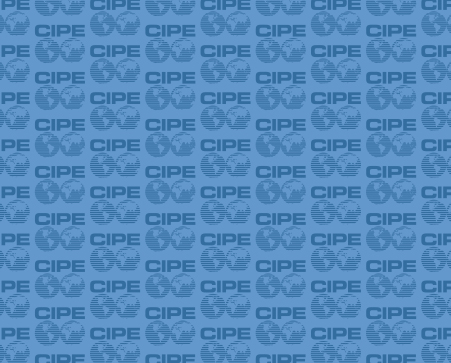
In Lewis Carroll’s poem “The Walrus and the Carpenter” the Walrus laments the “great quantities of sand” to be found on the beach, and that even “seven maids with seven mops” would not be able to sweep it clean. Those following corruption in Russia most likely share in the character’s pessimistic assessment of the task of cleaning up Russia’s political and economic system. Russia’s President Dmitry Medvedev has declared fighting corruption to be a primary focus of his administration, and compared his anti-corruption campaign to Martin Luther King’s struggle against racial segregation in the US.
In December 2008, the Russian parliament passed the ‘On Countering Corruption’ law, which responded to Medvedev’s initiative by instituting a packet of reforms ranging from establishing a legal definition of corruption to mandating that public officials and their family members disclose their personal wealth. Additionally, Russia has acceded to key international anti-corruption agreements and established a federal-level anti-corruption council.
No one familiar with the massive task of combating corruption in Russia – Medvedev included – expected to achieve significant results quickly or easily. But the release of Transparency International’s annual Corruptions Perceptions Index indicates that, two years into Medvedev’s term, not only has little progress occurred; the situation is worse than ever. Russia’s score of 2.1 on the 7-point scale matches the country’s lowest score since TI began releasing the index in 1995. The country’s relative rank – 154th out of 178 countries – is its worst ever and places it in the 15th percentile worldwide.
Even a cursory examination of the methods which Medvedev has employed against the behemoth corruption problem reveals that the strategy simply does not include the broad institutional reforms necessary to mitigate the negative effects of corruption on Russian society. Very few of Medvedev’s policy initiatives are aimed at empowering civil society or the private sector to resist corruption, or at decreasing the opportunity for corruption through scaling back the massive amounts of discretion among public officials that creates a breeding ground for corrupt activity. Instead, these policies appear designed to bolster the oversight and regulatory capacity of federal-level government institutions dominated by members of the United Russia party and the politically connected elite, a structure often described as “the power vertical.”
For example, a key provision in the government’s anti-corruption law requires civil servants and their families to disclose their personal wealth. While such measures can certainly be beneficial in deterring and investigating public sector corruption, the fact that the most potent feature of the process thus far involves deepening rather than retracting the reach of the government indicates an unwillingness to address the roots of the problem. The law contains no requirement or recommendation concerning an independent anti-corruption agency or task force, and while it does call for increased access to information by citizens, it makes no provision for citizen involvement in the anti-corruption process. To the contrary, Russian delegates to a summit of the UN Convention Against Corruption were instrumental in blocking a provision that civil society groups have a mandatory role in the international inspection process.
CIPE’s experience in Russia has demonstrated that progress in deterring and reducing corruption requires action from citizens who have experienced the negative impact of corruption in daily life. Through 10 regional anti-corruption coalitions, Russian business associations and local chambers of commerce have succeeded in achieving legislative changes that reduce opportunities for corruption and mitigate the effects of corrupt practices on small businesses.
This recent post by CIPE Regional Director Andrew Wilson outlines some of the ways CIPE and its partners have succeeded in reducing opportunities for corruption by mobilizing the private sector and civil society. If Russia’s leaders are serious about taking on institutionalized corruption, they will need to recognize that the solution must involve all sectors of Russian society, and not merely directives from the country’s elite.
Published Date: November 22, 2010